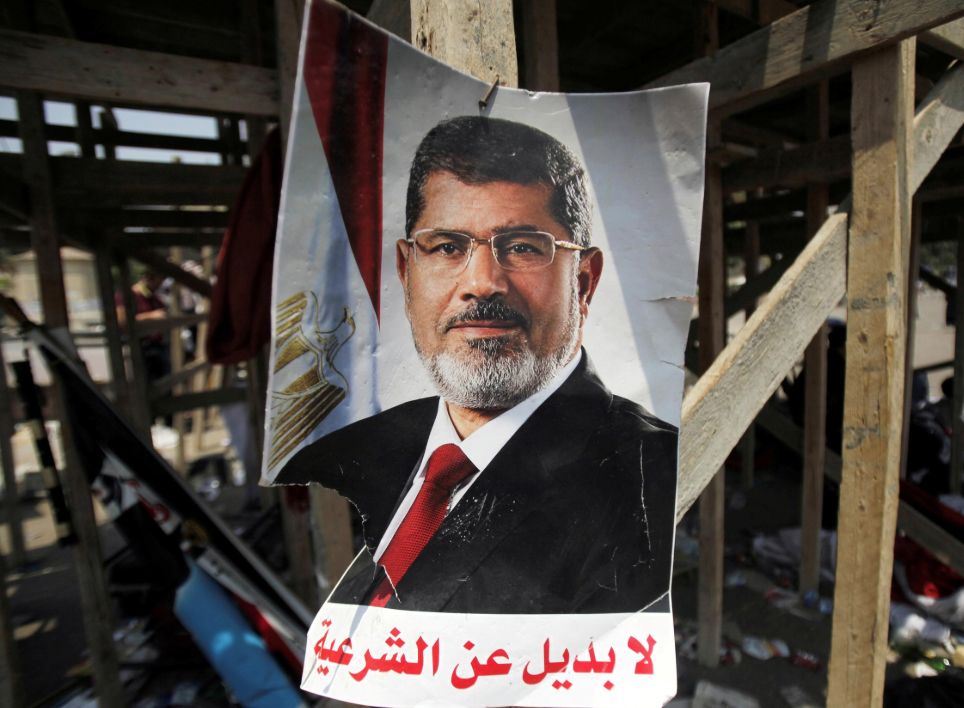“The transitional period is officially over,” President Mohamed Morsy said following the ratification of the country’s first post-revolutionary Constitution. Indeed, the country seems to have ticked all of the boxes of political transition.
On the one hand, an elite pact was struck between the Islamists and the military to smooth the peaceful passing (or sharing) of authority. On the other, parliamentary and presidential elections were held, and a Constitution was approved by the electorate.
Now, Egypt should have the democratically elected institutions that the literature on democratization has evoked over and over through the last four decades.
Yet nothing on the ground really suggests that the transition is done with. The very institutions that the transitional process created are still contested by influential social and political groups.
The urban-based protest movement that tore down former President Hosni Mubarak’s regime is still alive. And even though the recent wave of protest that erupted in the wake of the second anniversary of the 25 January revolution is ebbing, nothing has been done to absorb the political fluidity or to deal with the volatility of the situation.
On the contrary, police atrocities are back, political and judicial institutions lack general trust and violence seems to be fueling more violence. Over and above, the ill management of the recent crisis, and of the transitional process in general, warns of an unprecedented economic disaster that may change the dynamics of the sociopolitical strife once and for all.
Many of those who got politicized in the last two years hardly see any real change happening that may even closely meet their high expectations. This is the fruit of the trajectory on which Egypt was put immediately after Mubarak was ousted: the path to a conservative democracy.
In such a setting, democracy is reduced to the most basic procedure of timely elections. Little substance is added to such formula in the form of political, civil, economic and social rights.
This formalistic version of democracy was adopted because it is the only guarantee that the political opening that followed the collapse of authoritarianism will not mess up any of the internal or regional arrangements in which the state has been engaged since the time of former President Anwar Sadat.
It was tailored, for example, to make sure that the very limited dose of freedom of association that is offered will not threaten the current distribution of wealth, redraw the relation between labor and capital or redefine the state role in the economy versus the market. It was also designed to make sure that nothing would challenge Egypt’s commitment to the Camp David treaty or to the Persian Gulf’s security.
And of course, it was perfectly calculated so as not to jeopardize the inner core of state authoritarianism and cronyistic economy supervised and manipulated by the military, the intelligence and corrupt business circles.
This trajectory was consciously chosen by both the military, the bulwark of sociopolitical conservatism, and the Islamists. It was supported, if not even designed, by the US.
But the question is not whether such a strategy will prevail — it already has prevailed, thanks to the support of the old repressive bureaucracy, the military and the major international and regional powers. The real question is whether it will yield a functioning system.
There is nothing that guarantees the consolidation and functioning of this old/new regime. There is no real prospect for ending the escalating sociopolitical crisis. And the greatest fear is that this increasingly unstable situation will institutionalize the current situation of Egypt as a semi-failed state.
It is about time to understand that procedural democracy is not enough. Elections are necessary. But they do not represent a sufficient base for a stable and legitimate post-Mubarak order.
There is no alternative to negotiating the basics of power and wealth in this country. Authoritarianism, and possibly authority, collapsed dramatically on 28 January 2011. The state has no resources to get it back as it used to be. The Brotherhood and the old authoritarian alliance are trying to resurrect the ghost of the once robust authoritarian order. They will not succeed.
Amr Adly is a postdoctoral research fellow at the Social Sciences Cluster at Stanford University in the US.


